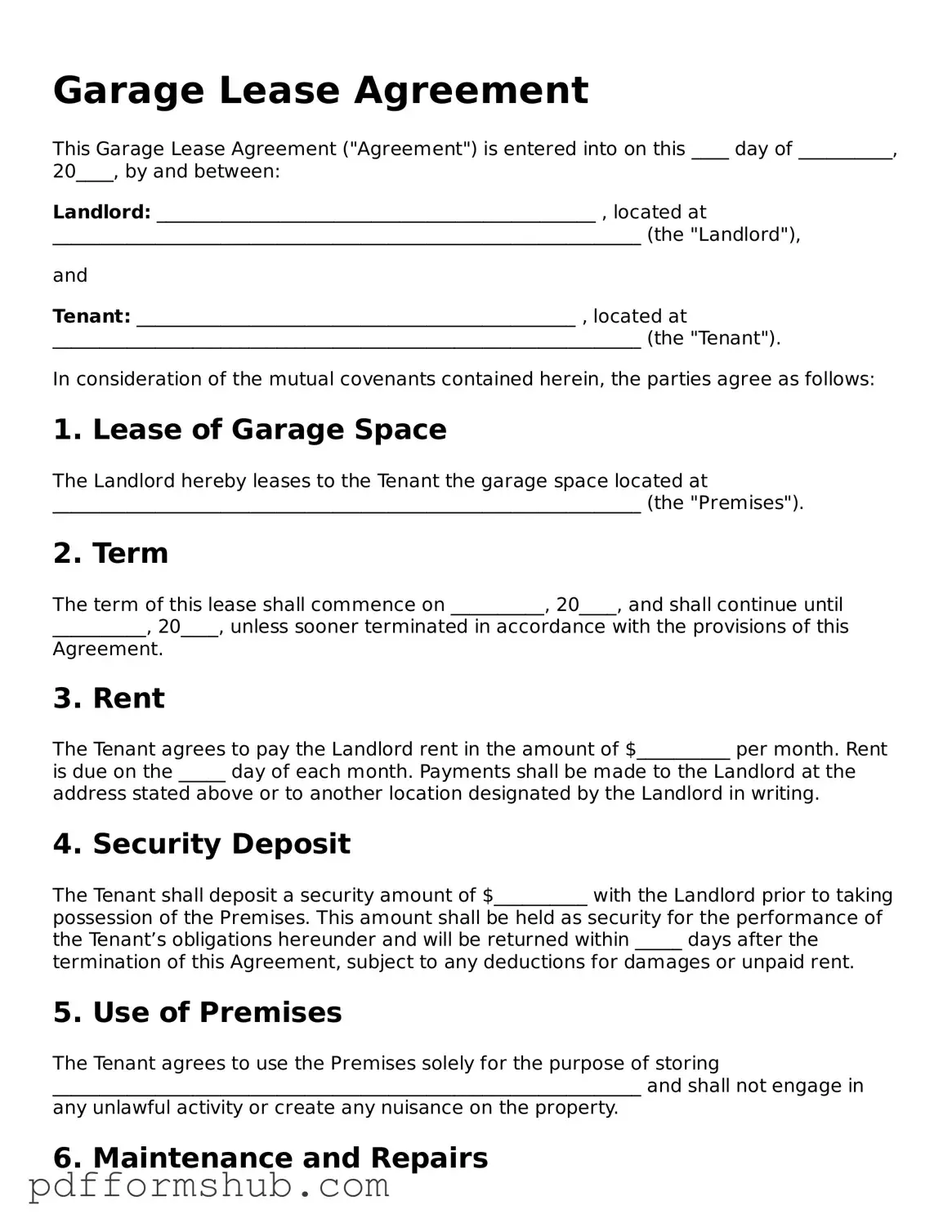Valid Garage Lease Agreement Form
A Garage Lease Agreement is a legal document that outlines the terms and conditions under which one party rents a garage space from another. This agreement typically includes details such as the rental period, payment terms, and responsibilities of both the landlord and tenant. Understanding this form is essential for ensuring a smooth leasing experience.
Ready to secure your garage lease? Fill out the form by clicking the button below.
Customize Form

Valid Garage Lease Agreement Form
Customize Form

Customize Form
or
Free PDF Form
Short deadline? Complete this form now
Complete Garage Lease Agreement online without printing hassles.